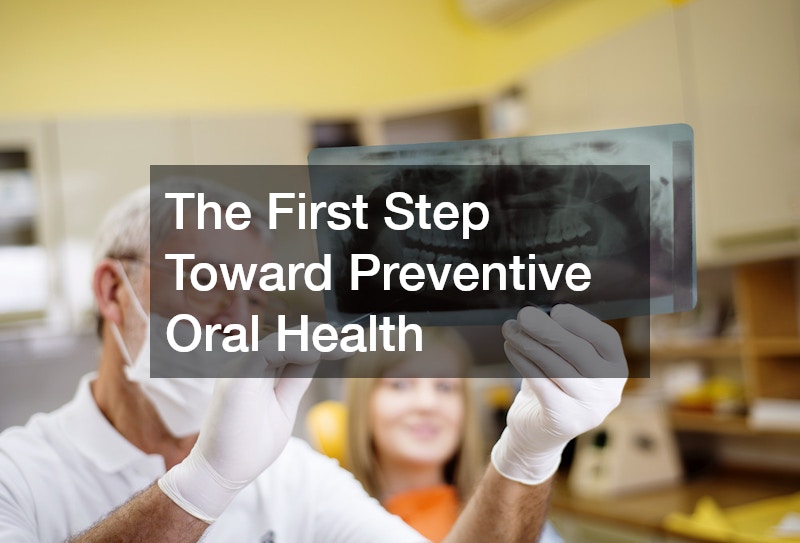Visiting the dentist is often viewed with anxiety and apprehension, particularly among those who have had negative experiences in the past. Yet, routine dental visits are crucial for maintaining oral health and ensuring a bright smile for years to come. Understanding how to make these visits more comfortable can alleviate stress and create a more positive experience for patients. Factors such as a caring environment, effective communication, and appropriate sedation methods play a crucial role in helping anxious patients feel at ease.
Further, this article aims to delve into different aspects of dental care, including aesthetic treatments to enhance smiles, specialized pediatric care, and preventive checks to ensure lasting oral health. We will also explore avenues for restoring damaged teeth and modern orthodontics, as well as the importance of choosing the right insurance coverage to support your dental health. By the end of this article, readers should feel better equipped to tackle their dental care needs confidently.
Making Dental Visits Comfortable for Anxious Patients
Routine dental visits can be a source of anxiety for many individuals; however, options such as visiting a sedation dentist can significantly ease this process. Sedation dentistry utilizes medication to help patients relax during their appointments, enabling them to receive necessary treatments without the overwhelming fear often associated with dental work. It is particularly beneficial for those undergoing extensive procedures or for those who have heightened anxiety around dental environments.
In addition to sedation options, dental clinics are increasingly creating soothing atmospheres where anxious patients feel more comfortable. Some clinics offer amenities such as cozy waiting areas, calming music, and options for distractions, like television or virtual reality, during treatments. These strategies help minimize stress and create a more welcoming environment for individuals apprehensive about dental visits.
Effective communication plays a vital role in making patients feel at ease as well. Dentists should take the time to explain procedures, answer questions, and listen to concerns, ensuring that patients feel informed and in control of their dental care. By establishing trust and reducing the uncertainty that comes with dental visits, patients can feel empowered to engage more openly with their dental health journey.

Improving Smiles Through Aesthetic Treatments
Aesthetic treatments offered by a cosmetic dentist can play a significant role in enhancing a patient’s smile, ultimately impacting their confidence and self-esteem. These treatments can range from simple whitening procedures to complex veneers and bonding. Routine dental visits are crucial for evaluating a patient’s suitability for cosmetic options and discussing potential outcomes.
In the aesthetic realm, several common procedures can dramatically change a person’s smile quality. For instance, teeth whitening procedures can help remove stains caused by coffee, red wine, or smoking, while porcelain veneers can correct imperfections such as chips or gaps. By incorporating these treatments into your regular dental care, patients can maintain not only a healthy smile but also an attractive one.
Further, aesthetic dental treatments often have long-lasting benefits, making them a worthwhile dental health investment. Many patients find that achieving a more aesthetically pleasing smile rates highly on their list of priorities, further encouraging them to maintain regular checkups and cleanings. Thus, the role of cosmetic dentistry serves as an essential companion to general oral health practices, blending aesthetic appeal with necessary care.
Specialized Care for Children’s Growing Smiles
Pediatric dental services are designed specifically to cater to children’s unique dental growth and developmental needs. Routine dental visits for children are vital in establishing healthy habits from a young age, ensuring that they learn the importance of oral hygiene and preventive care. Pediatric dentists create a child-friendly environment that helps alleviate fears and builds trust while addressing the various oral health issues that can arise during childhood.
As children grow, their dental needs change, making it essential to have a specialized approach to their care. Pediatric dentists are trained to handle common childhood issues, including the transition to adult teeth, cavity prevention, and proper guidance on orthodontic treatments. By making dental care fun and engaging, they lay the foundation for a lifetime of optimal oral health.
Moreover, routine visits help identify potential problems early, such as misalignment or cavities, allowing for timely intervention. Regular checkups during formative years ensure that children receive necessary treatment and preventive care. By fostering a positive relationship with dental visits, pediatric dentists help children grow up with a proactive approach to their oral health.

The First Step Toward Preventive Oral Health
Regular dental checkups serve as the cornerstone of preventive oral health care. By visiting the dentist regularly, patients can catch potential issues early before they escalate into more serious health concerns. During a standard dental checkup, the dentist performs a thorough examination of the teeth, gums, and mouth, offering both preventative care and educational advice on maintaining dental hygiene at home.
In addition to examinations, routine checkups often include professional cleanings that help remove plaque and tartar buildup that can lead to cavities and gum disease. These cleanings are crucial for maintaining optimal oral health as they ensure the teeth remain free from decay. Furthermore, your dentist can provide personalized advice tailored to individual habits and conditions to promote better oral care routines at home.
Investing time in routine dental checkups lays the groundwork for a healthier smile in the future. Many dental issues can be addressed early, preventing the need for more extensive and costly treatments down the line. Therefore, scheduling regular checkups is not only beneficial for immediate oral health but is also a wise decision for long-term dental well-being.
Restoring Damaged Teeth to Full Function and Appearance
When a tooth becomes damaged due to decay or injury, restorative dentistry plays an essential role in returning it to its full functional and aesthetic potential. One common solution for restoring damaged teeth is the use of dental crowns, which cover the entirety of the tooth, providing strength and protection, as well as enhancing appearance. The process of placing a dental crown typically begins with a routine dental visit, during which your dentist will assess the damage and determine the best course of action.
Dental crowns are made from various materials, including porcelain, ceramic, and metal, allowing for a custom match to the natural tooth color and function. The choice of material often depends on the specific needs of the patient, such as the location of the tooth and the patient’s personal preference. By effectively restoring the tooth’s form and function, dental crowns enable patients to bite and chew with confidence and comfort.
Beyond improving functionality, dental crowns can also enhance the smile aesthetic. A well-placed crown can camouflage imperfections, such as chips or stains, leading to a more cohesive overall dental appearance. Regular dental visits are essential not only for preventive care but also for addressing restorative needs.

Modern Orthodontics Without the Metal
Traditional metal braces are often the first thing that comes to mind when considering orthodontic treatments. However, modern orthodontics has evolved significantly, introducing discreet and comfortable ways to straighten teeth. This innovative approach aligns teeth using a series of clear, removable aligners, providing patients with the flexibility to maintain their daily routines without the hassles associated with traditional braces.
Invisalign treatment begins with an initial evaluation at a routine dental appointment, during which the dentist will assess alignment issues and create a personalized treatment plan. This cutting-edge technology allows individuals to achieve straight teeth over time without the discomfort and embarrassment often linked to metal braces.
Further, one of the benefits of Invisalign is that it requires fewer in-office visits compared to traditional orthodontic methods, which can be a time-saver for busy individuals. Patients also maintain the convenience of being able to remove aligners for better oral hygiene.
Fixing and Maintaining Your Removable Tooth Replacements
For those who have lost teeth, denture replacements are a common and effective solution. Regular adjustments, care, and, when necessary, denture repair, are key to ensuring that dentures continue to function optimally and comfortably. Routine dental visits allow for essential assessments of fitting and function, helping identify any necessary adjustments to maintain a secure and comfortable fit.
When dentures become loose or damaged, it can lead to discomfort and difficulty with eating and speaking. Routine checkups enable your dentist to promptly address these issues, offering repair services or recommending relining procedures to restore proper fit and function. By being proactive in your dental care, you can extend the life of your dentures and ensure they serve you well through regular repairs and adjustments.
Moreover, maintaining a good oral hygiene routine is crucial for individuals wearing dentures. Regular dental visits can provide guidance on best practices for cleaning and caring for removable tooth replacements, ensuring that they remain in excellent condition. With proper care and regular checkups, denture wearers can enjoy improved functionality and enhanced quality of life.
Finding Coverage That Supports Your Dental Care Needs
Navigating dental insurance can often be overwhelming, yet securing adequate coverage is vital for managing the financial aspects of regular dental care. Many factors come into play when choosing an insurance plan, and consulting a local health insurance agent can provide valuable assistance in finding the right option that meets individual or family needs. A knowledgeable agent can help clarify what different plans cover, including preventive care, cosmetic treatments, and emergency services.
Understanding coverage limits, co-payments, and what specific dental services are included can help you make informed choices about your dental care. Some plans might place emphasis on preventive services or may allow for more extensive treatments, guiding your decisions on when and how often to schedule routine dental appointments. By utilizing a local health insurance agent, you can streamline the process of selecting a suitable plan that supports your overall dental health.
Having insurance coverage can greatly reduce the financial burden associated with necessary dental treatments. When you understand your coverage, you can prioritize necessary dental services without the added stress of unexpected costs. Fostering a healthy partnership with a local health insurance agent solidifies a strong foundation for achieving optimal oral health.

Where Comprehensive Oral Care Comes Together
A dental clinic serves as the epicenter for comprehensive oral health and individualized patient care. These clinics combine a range of services from routine checkups to specialized cosmetic and restorative procedures, ensuring that all patient needs are met in a singular location. By offering multiple services under one roof, dental clinics provide convenience and quality care that fosters long-term dental relationships.
Your local dental clinic is also a place where patients are encouraged to ask questions, express concerns, and explore treatment options. With a wide array of dental professionals available, patients can receive tailored advice that addresses their unique dental situations. This level of comprehensive care reinforces the importance of routine dental checkups and preventative measures, which are crucial for maintaining good oral health.
In addition, a clinic’s collaborative approach promotes integrated care, linking preventive services with restorative or aesthetic treatments as necessary. This ensures that patients receive seamless care through every stage of their dental journey.
Choosing a Provider in Your Oral Health Journey
Selecting the right dentist is crucial for effectively managing your oral health needs and ensuring a positive relationship with dental care. Routine dental visits can only be effective when patients feel comfortable and confident in their chosen provider. Factors to consider when selecting a dentist include their experience, the range of services offered, the ease of access to appointments, and their approach to patient care.
Additionally, recommendations from friends, family, or online reviews can provide further insight into the quality of care offered by a dentist. Prospective patients should feel empowered to ask questions during initial consultations, such as inquiries about the dentist’s approach to treating anxious patients or how they address preventive practices. This exchange of information allows patients to make informed decisions about whom they trust with their dental care.
Ultimately, finding a dentist who values collaboration and supports overall dental well-being will enhance your oral health journey. A compatible provider can foster open communication, making routine visits less stressful and more productive. By establishing a strong relationship with your dentist, patients lay the groundwork for a healthier, happier smile.
Dental care is integral to maintaining oral health, preventing disease, and enhancing the aesthetic qualities of a smile. Addressing patient anxiety through comfort and sedation options, alongside specialized care for children and comprehensive treatment offerings, contributes to a more positive dental experience. Aesthetic treatments, restorative dentistry, and modern orthodontics further showcase the strides taken toward improving patient care and outcomes.
Engaging actively in preventive care, guided by insightful partnerships with local insurance agents and skilled dental professionals, can facilitate access to necessary services and treatments. With a focus on routine checkups, patients can catch potential problems early, ensuring that they maintain optimal dental health and functionality. As you embark on your oral health journey, remember that the right provider, supportive insurance, and personalized care can significantly impact your dental experiences. Prioritizing regular dental visits alongside an open dialogue with your dentist lays the foundation for a brighter, healthier smile that can stand the test of time.
